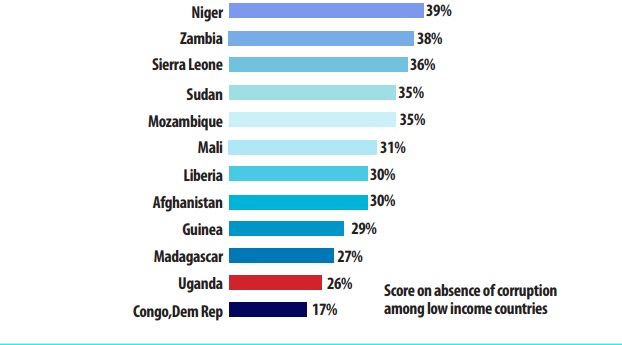
New report ranks country among most corrupt in region
COVER STORY | THE INDEPENDENT | A new report by the World Justice Project (WJP) has ranked Uganda as the second most corruption-ridden country among the world’s poorest countries; the so-called low income countries. Only the Democratic Republic of Congo is ranked worse than Uganda.
Uganda’s ranking is mostly hurt by government officials in the executive branch who use public office for private gain. The officials could be receiving bribes, informal payments, and other inducements in the course of delivering public services and enforcing regulations.
The researchers also looked at the extent to which government procurement and public works contracts are awarded through an open and competitive bidding process, and whether government officials at various levels of the executive branch embezzle public funds.
Next in line to tarnish the country’s image because of corruption are government officials in the police and the military who use public office for private gain. These use their offices to solicit and accept bribes to perform basic police and military services or to investigate crimes, and are not free of improper influence by private interests or criminal organisations.
Equally involved are government officials in the judicial branch; including judges and judicial officials, who solicit and accept bribes to perform duties or expedite processes, and whose judicial rulings are not free of improper influence by the government, private interests, and criminal organisations.
The report notes that MPs and government officials in the legislative branch also use their public offices for private gain by soliciting or accepting bribes or other inducements in exchange for political favors or favorable votes on legislation. But this is to a lesser extent.
The report was produced by World Justice Project (WJP) which describes itself as an independent, nonpartisan, multidisciplinary organisation working to create knowledge, build awareness, and stimulate action to advance the rule of law worldwide. It is dominated by experts from American institutions; especially university dons from Stanford University, University of Chicago, Harvard, and the Carnegie Endowment.
The focus of WJP is on rule of law and they focus on corruption as a sub-component. The WJP report researchers focus on 44 indicators across eight categories, namely: Constraints on Government Powers, Absence of Corruption, Open Government, Fundamental Rights, Order and Security, Regulatory Enforcement, Civil Justice, and Criminal Justice. The performance of each is scored and ranked globally and against regional and income peers.
Based on this research it produces an annual WJP Rule of Law Index which the publishers claim is the world’s leading source of original, independent rule of law data. They describe their methodology as rigorous and say it draws on expert and household surveys to measure rule of law in 142 countries and jurisdictions, covering 95% of the world’s population.
Published annually since 2009, the Index is used by governments, multilateral organisations, businesses, academia, media, and civil society organisations around the world to assess and address gaps in the rule of law.
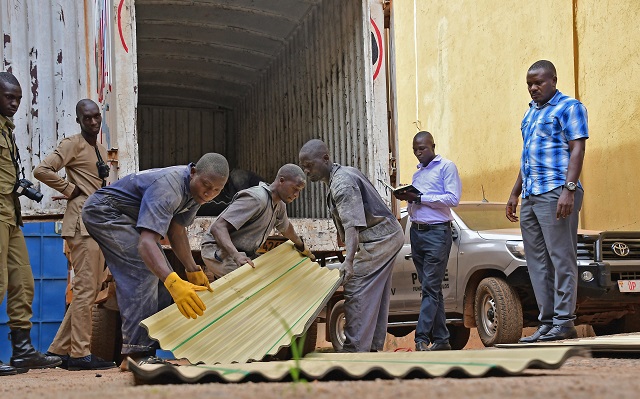
The publishers say each edition of the WJP Rule of Law Index relies on more than 152,000 household and expert surveys to measure how the rule of law is experienced and perceived in practical, everyday situations by the general public around the world.
Uganda Ranking
This year, Uganda is ranked 125th out of 142 countries worldwide. This means it is better than at least 17 countries. This is mainly because, apart from corruption by public officials, Uganda scores relatively well on other indicators.
For example, regionally, Uganda ranks 28th out of 34 countries. It means it is better placed than just six countries. However, Uganda’s score this year has increased compared to last year.
Also, Uganda bucked the trend and is among countries that saw an improvement in its Civil Justice score. This performance is registered as two thirds of countries (66%) saw their Index scores for Civil Justice fall this year, up from 61% of countries last year. Greater justice delays and weaker enforcement are largely to blame. Meanwhile, scores for Criminal Justice also fell in slightly more countries this year (56%) than last year (55%).
In fact Uganda is among the minority of countries to see its Rule of Law Index score increase this year.
In this year’s rankings and scores Uganda registered in 5 of the 8 categories. It declined on corruption, security and order, and criminal justice.
Uganda has consistently scored badly on the corruption ranking of the WJP reports since 2015 when they began being compiled.
In the case of Uganda, the research was likely influenced by the widespread reports of members of President Yoweri Museveni’s cabinet who were caught stealing iron-roofing sheets meant for poor and vulnerable citizens in Karamoja. The so-called `Mabati scandal’ spearheaded by the Minister for Karamoja, Mary Goretti Kitutu, sucked in the Speaker of Parliament Annet Anita Among, Prime Minister Robinah Nabbanja and others.
There have also been numerous reports of top-ranking army and police officials involved in land grabbing and other scandals involving public procurement.
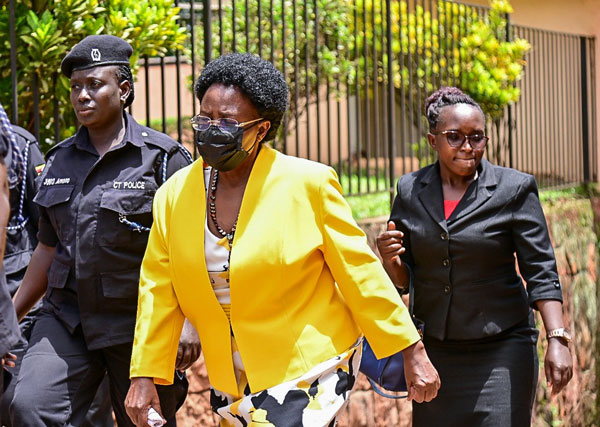
The publishers of the WJP report say effective rule of law could reduce such cases of corruption. In turn this could combat poverty and disease, and protect people from injustices large and small.
Rule of law underpins development, accountable government, and respect for fundamental rights, and it is the foundation for communities of justice, health, opportunity, and peace.
Uganda’s worst score was 32% on criminal justice at 32%. This category is important as it evaluates a country’s criminal justice system.
According to the WJP, an effective criminal justice system is a key aspect of the rule of law, as it constitutes the conventional mechanism to redress grievances and bring action against individuals for offenses against society. Its assessment considers the perceived behavior of the entire system; including the police, lawyers, prosecutors, judges, and prison officers.
Under this category, the researchers look into the criminal investigation system, the timeliness and effectiveness of adjudication, and the correction systems effectiveness in reducing criminal behavior. They also look into corruption, improper government influence, and the due process of accused persons. Uganda’s criminal justice system scores worst on corruption and improper government influence.
The order and security category is another where Uganda’s score and ranking declined. Uganda had been relatively strong in this area. But this year it saw a slight decline in scores to57%. In previous years it has scored around 59% and even 61% in 2015.
This category measures how well a society ensures the security of persons and property. According the WJP, security is one of the defining aspects of any rule of law society and is a fundamental function of the state. It is also a precondition for the realisation of the rights and freedoms that the rule of law seeks to advance.
Under this category, researchers look into whether crime is effectively controlled, civil conflict is limited, and people do not resort to violence to redress personal grievances.
Uganda performed very well on limiting civil conflicts and scored 94% in that sub-sector. However, it scored very poorly on failing to ensure that people do not resort to violence to redress personal grievances. Here it score just 24%.
According to Afrobarometer, the pan-African, independent, non-partisan research network that measures public attitudes on economic, political, and social matters in Africa, Uganda has seen a significant rise in the number of cases of mob justice. This is a form of extrajudicial punishment or retribution in which a person suspected of wrongdoing is typically humiliated, beaten, and in many cases killed by vigilantes or a crowd. Mob action takes place in the absence of any form of fair trial in which the accused are given a chance to defend themselves.
A 2020 report by Afrobarometer cites the Uganda police force saying that homicides by mob action in Uganda occur mainly in response to thefts, robberies, killings, and reports of witchcraft. It also says about 1 of every 6 Ugandans has engaged in mob justice which in 2019 claimed 746 lives. According to the Afrobarometer report, a major factor driving mob justice is the lack of trust in the formal criminal justice system to administer fair and timely justice.
Recently, there has been a spate of mob attacks, including on members of the security forces involved in land grabbing wrangles. In a recent incident, residents of Kasokwe village in Galilaaya Sub-County, Kayunga District, pounced on soldiers of the UPDF. The angry civilians, who are wrangling over family land, accused the soldiers of guarding the land interests of their tormentor, GM Sugar factory. The case involves a soldier called Major Baker Kimeze, who is also a traditional ruler. His siblings accuse him of selling off family land to GM Sugar without their consent.
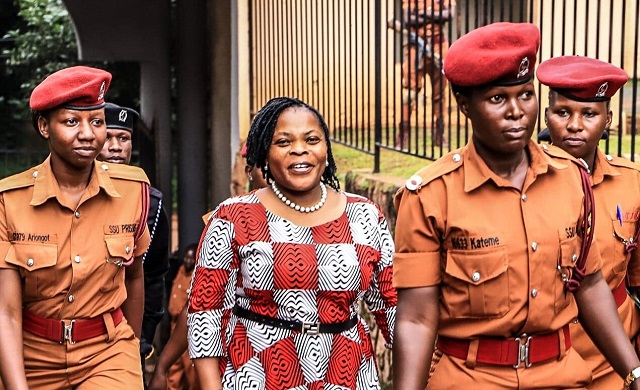
According to the report, this is the sixth consecutive Index marking global declines in the rule of law globally. This year alone, the rule of law declined in 59% of countries surveyed.
Global rankings and trends
Regionally, Rwanda is the best performer on the Rule of Law Index in Sub-Saharan Africa. It is ranked 41st out of 142 countries globally, followed by Namibia and Mauritius. The three countries with the worst scores in the sub-Saharan region are Mauritania, Cameroon, and Democratic Republic of the Congo (138th globally).
In the last year, 20 out of 34 countries declined in Sub-Saharan Africa. Of those 20 countries, 10 had also declined in the previous year. Among low income countries, Uganda ranks 13th out of 18.
Globally, the top-ranked country in the 2023 WJP Rule of Law Index is Denmark, followed by Norway, Finland, Sweden, and Germany. The country with the lowest score is Venezuela, then Cambodia, Afghanistan, Haiti, and the Democratic Republic of the Congo.
Countries and jurisdictions measured in the Sub-Saharan Africa region include: Angola, Benin, Botswana, Burkina Faso, Cameroon, Côte d’Ivoire, Democratic Republic of the Congo, Ethiopia, Gabon, The Gambia, Ghana, Guinea, Kenya, Liberia, Madagascar, Malawi, Mali, Mauritania, Mauritius, Mozambique, Namibia, Niger, Nigeria, Republic of the Congo, Rwanda, Senegal, Sierra Leone, South Africa, Sudan, Tanzania, Togo, Uganda, Zambia, and Zimbabwe.
According to the report, since 2016, rule of law has fallen in 78% of countries studied. The rule of law factor to decline most between 2016 and 2023 is Fundamental Rights down in 77% of countries, including Uganda.
Over the past seven years, Index scores for Constraints on Government Powers have fallen in 74% of countries including Uganda. Around the world, legislatures, judiciaries, and civil society including the media, have all lost ground on checking executive power, the Index shows.
“The world remains gripped by a rule of law recession characterized by executive overreach, curtailing of human rights, and justice systems that are failing to meet people’s needs,” said WJP co-founder and president William H. Neukom. “People around the world are paying the price.”
These and other authoritarian trends continued in 2023, but they are slowing, with fewer countries declining in 2022 and 2023 than in earlier years, the researchers say.
Human rights declined in 3 out of every 4 countries since a global rule of law recession began in 2016. Today, more than 6 billion people out of the 8 billion live in a country where the rule of law weakened between 2022 and 2023.
Since authoritarian trends pushed the world into a rule of law recession in 2016, the global downturn has affected 78% of countries, the latest Index shows.
The rule of law factor to decline most between 2016 and 2023 is fundamental rights down in 77% of countries.
This and other authoritarian trends continued in 2023, but they are slowing, with fewer countries declining in 2022 and 2023 than in earlier years.
On the other hand, declines in the functioning of justice systems are now spreading, with more countries struggling to provide people with timely, affordable, and accessible justice. The Index factor measuring Civil Justice was the factor that declined in the most countries this year.
“Our previous research estimates that 1.5 billion people are unable to solve their legal problems,” WJP Executive Director Elizabeth Andersen said, “so it is particularly alarming that so many justice systems got even weaker in 2023. If we are to reverse course, justice systems need a paradigm shift to a people-centered approach, putting the needs of the people they are intended to serve first.”
 The Independent Uganda: You get the Truth we Pay the Price
The Independent Uganda: You get the Truth we Pay the Price
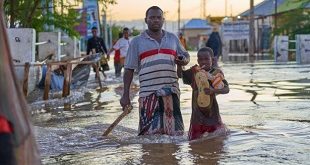


As if having a tarnished image is of greater concern to Uganda than corruption itself. But we learnt long time ago that naming and shaming does not work in Uganda because shame is not there.
The reasoning that follows is, if we can find how to cleverly disguise corruption as they do in most rich and powerful nations, then we can finally stop worrying and fussing about corruption in Uganda (or, of apparently more concern than corruption in Uganda, Uganda being branded as a corrupt nation). That we must be seen as good looking on the outside, even if we are rotting inside.
As Ugandans, have we given up on our capacity to actually deal decisively with corruption, to the point where all that’s left is concern about our image? Damage control just?
Why do we seem unable to learn from countries that have managed to deal with corruption? They have shown us that it is not impossible. What would it take, what do we need, to move from “fighting corruption” endlessly as though “fighting corruption” is the end goal requiring an endless supply of corruption for us to stay fighting corruption?
We have taken pride in our capacity to pass the world’s toughest legislation against random minorities (by the way, as a Ugandan, my life has not improved in any way whatsoever as a result of all those years of noisemaking and the eventual passing of that draconian piece of legislation), yet even the most openly and shamelessly corrupt who have been keeping our country on its knees begging from donors, those ones remain completely untouchable as corruption is worsening at alarming rates and more and more corrupt people continue looting with impunity, and we continue convincing ourselves that we are serious about “fighting corruption”.
When are we going to start taking ourselves seriously enough as a nation to be able to do what other countries have done to properly deal with corruption for good? I’m not talking about black Monday and muswaleko, I mean revolutionary actions, the way we as a nation set an example of how to turn things around with HIV and AIDS… we have the capacity to focus our energies and take bold actions… what are we lacking?
Corruption is a lifestyle in Uganda.
Corruption in Uganda is part of the execution process.